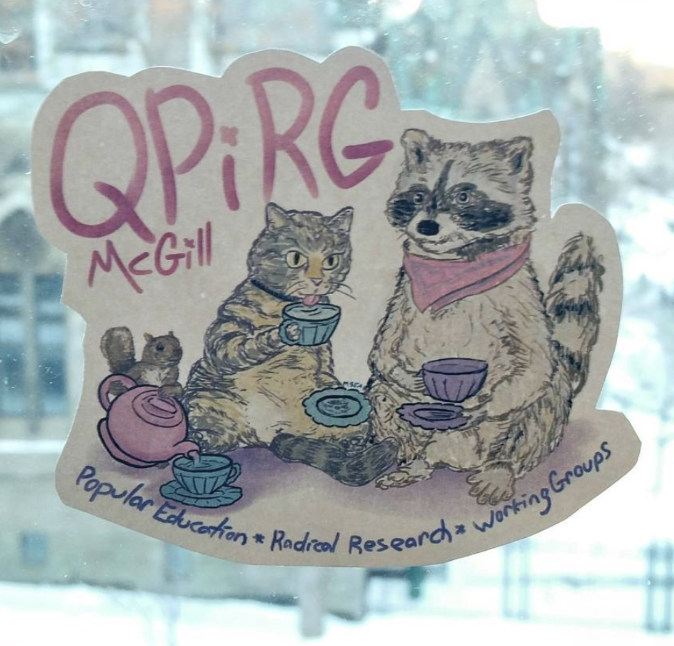As a part of Quebec Public Interest Research Group’s (QPIRG) Culture Shock 2019, the Sexual Assault Center of the McGill Students’ Society (SACOMSS) collaborated with the group to host a panel discussion on Nov. 23 about the National Inquiry into Missing and Murdered Indigenous Women and Girls (MMIWG). The activists also discussed the intersection between anti-colonialism and sexual violence against Indigenous communities.
Palm Springs Cahuilla educator Isabel Vasquez explained that her path to educating the public about issues facing Indigenous peoples began after her and her family personally experienced sexual violence and abduction. She also explained how invisibility perpetuates the violence that many Indigenous peoples face in North America.
“In my family in particular, [in] every generation there’s been somebody [who has] gone missing, or had an attempt on their life, or [had] been [human] trafficked,” Vasquez said. “One of the greatest contributing factors to the rates of violence against Indigenous people is the way that we are left out of society’s collective consciousness in colonial countries.”
Judy Sackaney, a Mushkegowuk Cree from Albany First Nation on Treaty 9 territory, stated that the stigma around sexual violence and alcoholism persists in Indigenous communities.
“I didn’t learn the history, or hear people’s stories, [until] I was much older,” Sackaney said. “[I didn’t hear] about sexual violence [that occurred to people] close to me [….] I didn’t know then, maybe because I was a kid then myself.”
Sackney emphasized the importance of finding spiritual ways to heal from the trauma of sexual violence.
“We don’t let it define us, because it wasn’t our fault,” Sackney said. “It wasn’t anybody’s fault. [….] We use our tools, our ceremonies, our ways of healing, even praying [to cope]. I’ve grown so much spiritually [from] learning the ceremonies.”
Vasquez acknowledged that the traumatic nature of these experiences, and their ongoing connections to settler-colonialism, make them difficult to share when educating the public about Indigenous peoples’ experiences.
“It is very hard to share these very personal stories and perspectives,” Vasquez said. “When we’re talking about history and consistent instances of abduction, sexual abuse, [and the] trafficking of Indigenous people, we’re talking about something that isn’t just random [….] This is a history that is deliberate.”
Vasquez explained that non-Indigenous people have a responsibility to act as allies by raising awareness within their own communities.
“People who are non-Indigenous […] need to talk to each other about how they perceive Indigenous people,” Vasquez said. “When you hear these [misconceptions], I want you to think about why this is the reality that we are all accepting [….] This isn’t just our work to do.”
During the question period at the end of the panel, an audience member addressed that The Final Report of the National Inquiry into Missing and Murdered Indigenous Women and Girls did not acknowledge many incidences of police violence against Indigenous peoples. Panelist Dayna Danger, a visual artist, organizer, and drummer, responded that, for Indigenous communities, relationships with police remain fraught.
“As much as we want to say ‘fuck the police,’ […] there is work that needs to be done because we still have to address these systems,” Danger said. “We’re still in this society. We can’t really escape that at the moment. People are still earnestly trying to find their family members, but unfortunately, the response [from the police] has not been great.”
Touching upon Indigenous attitudes toward the Montreal police specifically, Danger commented that Indigenous people often have to do the work of law enforcement themselves.
“I think that there is good work that is happening,” Danger said. “But I’d be [hard] pressed to find an Indigenous person who really waits for the police to catch up [with Indigenous community organizing] at this point. This is still work that needs to be done.”
The panel concluded with Danger leading the audience in the ‘Strong Woman,’ a traditional song that many Indigenous communities have used to raise awareness about missing and murdered Indigenous women, which has modified lyrics for each community. A fourth panellist, Kiki Harper, an Indigenous two-spirit person who creates music, joined in the performance.








